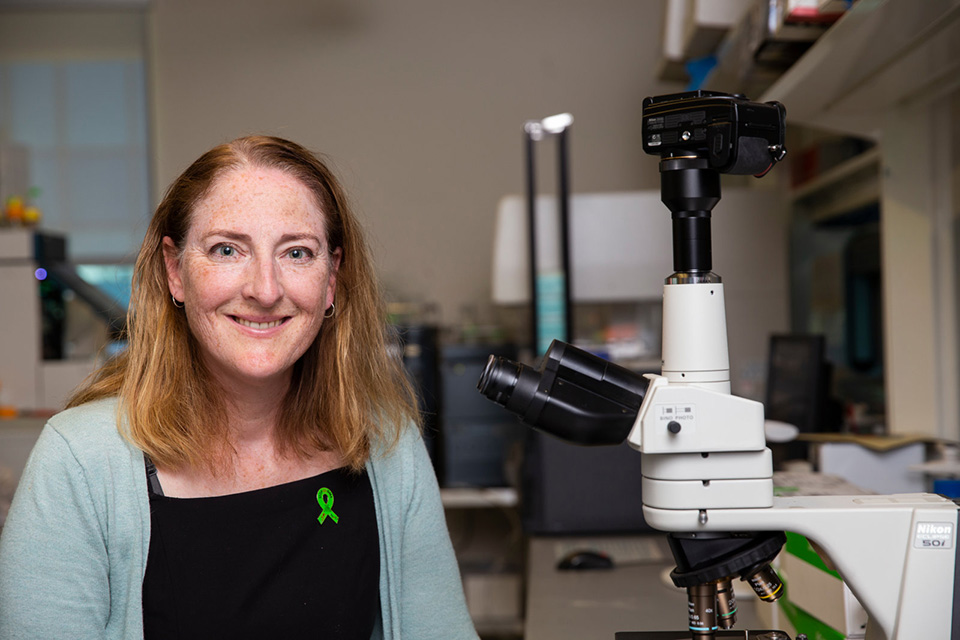Dr. Caroline Cameron’s team tackles diagnostic challenges with promising new program

Photo via University of Victoria.
UVic researchers, led by microbiologist Dr. Caroline Cameron, are on the frontlines of diagnostic research for syphilis — a bacterial infection that remains a global health crisis. Cameron’s lab, in collaboration with American and Spanish institutions, has secured $352 124 USD in funding from the National Institutes of Health (NIH) to develop a new syphilis diagnostic test, designed to overcome the limitations of current methods.
Syphilis is a sexually transmitted infection (STI) caused by the bacterium Treponema pallidum. Different subspecies of Treponema cause various types of syphilis, such as venereal and endemic syphilis, as well as other infections like pinta and yaws disease.
Unfortunately, Treponema subspecies are so similar that blood tests cannot distinguish between them. Even more problematically, current tests are unable to differentiate between a current infection and a past one, meaning that a person will continue to test positive regardless of whether they’ve already received treatment.
The bacterium is notoriously difficult to diagnose, especially in the early stages of infection, which is why Cameron’s research to improve syphilis testing is so crucial.
“Currently used tests detect the antibodies that are made against the pathogen,” wrote Cameron in an email to the Martlet, “and not the bacterium itself.”
These suboptimal tests pose significant challenges, as people in the early stages of infection might test negative, and people who have been reinfected might not realize until the last stages of infection.
Syphilis progresses through four distinct stages — primary, secondary, latent, and tertiary. The primary stage usually manifests as a local reaction to the infection in the form of a chancre — a painless, round ulcer. The secondary stage often manifests as skin lesions, fever, headaches, and joint pain, among other symptoms. If left untreated, the symptoms will disappear, but the infection will persist in a dormant state, entering the latent stage. Lastly, the tertiary stage can cause severe damage to the heart, brain, and other organs.
The lack of optimal testing is particularly challenging for congenital syphilis — the transmission of syphilis in utero — because antibodies are transferred to the developing fetus during pregnancy, and the newborn will test positive regardless of whether they are infected or not. If not treated, congenital syphilis can lead to miscarriages, preterm birth, and stillbirth.
According to the Canadian government, syphilis cases have increased by 109 per cent in the last four years, and according to the BC Syphilis Action Plan, over 90 per cent of infectious syphilis cases in 2022 are among females of childbearing age (15-49 years old). In Canada, rates of congenital syphilis have increased by 599 per cent.
“Our goal is to create a point-of-care test that can be used with easily collected samples, such as urine,” said Cameron. These tests would be easy to perform and interpret, allowing people to self-test at home. The biggest challenge Cameron and her team are facing in creating these tests is that the peptides needed to detect the infection are present at low concentration, so sensitivity is an issue.
“It is similar to looking for a needle in a haystack,” said Cameron.
“Dr. Cameron’s work supports [UVic’s Aspiration 2030 Research and Creative Works Strategy] plan, including collaboration with international partners and mobilizing knowledge to address societal challenges,” wrote Fraser Hof, Interim Vice-President, Research and Innovation in an emailed statement to the Martlet.
“Funding of this magnitude and prestige helps position UVic as a leader in research with a direct and positive impact on public health,” said Hof. “NIH is the largest public funder of biomedical research in the world and these investments reinforce confidence in her research program to respond to the syphilis epidemic.”
This groundbreaking research may prove crucial in the ongoing fight against syphilis, offering hope for millions worldwide. If successful, new tests will not only allow syphilis to be accurately and easily diagnosed but will help in the fight against this devastating disease all over the world, including resource-limited places where syphilis cases are higher.






